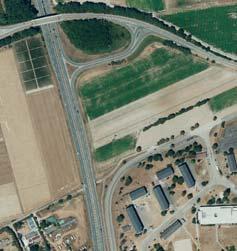
2 minute read
District of Rhine-Neckar
Economic power combined with quality of life and a high level of innovation potential make Rhine-Neckar district an attractive place to live and work. With fast internet and strong business networks, it is an ideal location for companies.
Processes of structural change triggered by globalisation, demographic shifts and digi tisation are creating major challenges for companies and authorities in the 54 towns and municipalities of the Rhine-Neckar district. Stefan Dallinger, District Administrator, describes the opportunities and challenges facing the location.
Advertisement
Digitisation is one of the key factors determining the success of towns, cities and businesses in international competition. How is digitisation being implemented in the “smart county” Rhine-Neckar and how will it benefit companies and schools? By expanding the district’s fibre-optic cable network, Zweckverband High-Speed-Netz Rhine-Neckar – the association responsible for delivering high-speed network coverage in the area – aims to provide super-fast Internet to its urban and rural customers by 2030. The backbone infrastructure, which is vital for the expansion of broadband throughout the district, has now reached all its towns and communities – and both companies and our schools will benefit. Practical application of state-of-the-art technologies in Learning Factory 4.0 will help to lay the foundations for the future careers of our young people and introduce them to the new challenges of Industry 4.0. Through the association Smart Production Network, and in close partnership with the City of Mannheim in 2016, we are also promoting knowledge transfer in the region. All these measures are driving forward the transformation to Industry 4.0 and its intelligently networked production systems. That’s what we call “regional cooperation in action”.
Population: 546,745 No. of employees: 176,402 No. of towns/cities/municipalities: 54
Attractive urban and natural environments offer a high quality of life in the Rhine-Neckar district.
Stefan Dallinger District Administrator of the Rhine-Neckar district
Residential and commercial users are increasingly competing for sites. What is the Rhine-Neckar district’s strategy for securing and developing user-oriented commercial sites? This issue is a serious challenge for our district, too. So, we have decided to produce a development concept for commercial pro perties. This will be the foundation for providing our towns and municipalities with needs-based support relating to the development and marketing of commercial and industrial sites. We expect the concept to be completed in 2021.
Technological progress is changing economic structures and working methods. What concepts does your region offer for flexible workplace solutions? Indeed, we are currently looking closely at the new worlds of work emerging in our presentday society. We firmly believe that we need to create services that make our companies even more attractive by offering flexible new workplace solutions while ensuring greater flexibility for individual employees. We are currently working on a concept that takes these factors into account and includes additional functionalities, such as a central meeting place or local shops, using an approach based on multifunctional workspaces.
www.rhein-neckar-kreis.de
Contact: Wirtschaftsförderung Rhein-Neckar-Kreis, Phone: +49 (0)6221 522-1278, Email: wirtschaftsfoerderung@rhein-neckar-kreis.de Photo p. 38: AVR / FiberNet; p.39: Bernward Bertram









